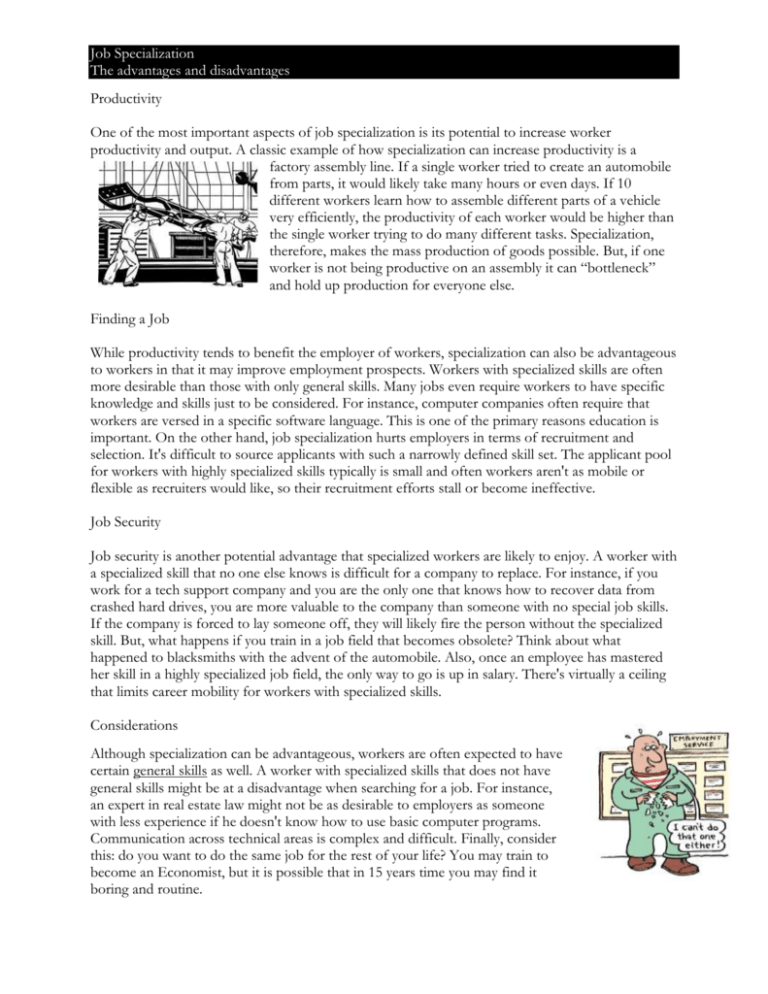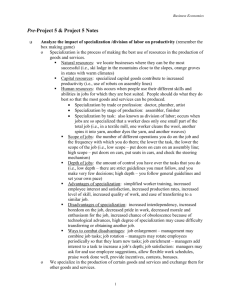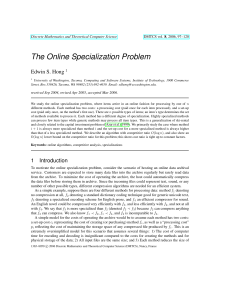File
advertisement

Job Specialization The advantages and disadvantages Productivity One of the most important aspects of job specialization is its potential to increase worker productivity and output. A classic example of how specialization can increase productivity is a factory assembly line. If a single worker tried to create an automobile from parts, it would likely take many hours or even days. If 10 different workers learn how to assemble different parts of a vehicle very efficiently, the productivity of each worker would be higher than the single worker trying to do many different tasks. Specialization, therefore, makes the mass production of goods possible. But, if one worker is not being productive on an assembly it can “bottleneck” and hold up production for everyone else. Finding a Job While productivity tends to benefit the employer of workers, specialization can also be advantageous to workers in that it may improve employment prospects. Workers with specialized skills are often more desirable than those with only general skills. Many jobs even require workers to have specific knowledge and skills just to be considered. For instance, computer companies often require that workers are versed in a specific software language. This is one of the primary reasons education is important. On the other hand, job specialization hurts employers in terms of recruitment and selection. It's difficult to source applicants with such a narrowly defined skill set. The applicant pool for workers with highly specialized skills typically is small and often workers aren't as mobile or flexible as recruiters would like, so their recruitment efforts stall or become ineffective. Job Security Job security is another potential advantage that specialized workers are likely to enjoy. A worker with a specialized skill that no one else knows is difficult for a company to replace. For instance, if you work for a tech support company and you are the only one that knows how to recover data from crashed hard drives, you are more valuable to the company than someone with no special job skills. If the company is forced to lay someone off, they will likely fire the person without the specialized skill. But, what happens if you train in a job field that becomes obsolete? Think about what happened to blacksmiths with the advent of the automobile. Also, once an employee has mastered her skill in a highly specialized job field, the only way to go is up in salary. There's virtually a ceiling that limits career mobility for workers with specialized skills. Considerations Although specialization can be advantageous, workers are often expected to have certain general skills as well. A worker with specialized skills that does not have general skills might be at a disadvantage when searching for a job. For instance, an expert in real estate law might not be as desirable to employers as someone with less experience if he doesn't know how to use basic computer programs. Communication across technical areas is complex and difficult. Finally, consider this: do you want to do the same job for the rest of your life? You may train to become an Economist, but it is possible that in 15 years time you may find it boring and routine.








